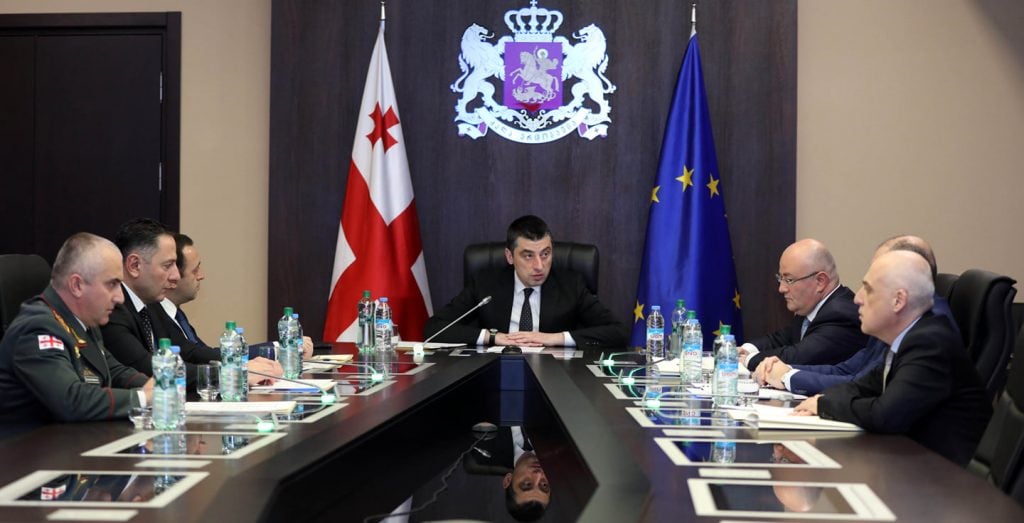On November 13, the National Security Council (NSC) of Georgia held its first session under chairmanship of the new Georgian Prime Minister, Giorgi Gakharia.
At the session, the NSC members discussed the security challenges of Georgia and the region as a whole, including the recent developments in occupied Tskhinvali Region/South Ossetia, as well as cyber security issue.
“The security of this country is critically important today… Our number one security challenge is occupation,” Gakharia said, noting that “this challenge is utmost critical for every citizen, especially for those, who live on the both sides of the line of occupation.” PM Gakharia underlined that it is “critically important” to work on the security issues in a coordinated manner.
PM Gakharia has tasked the newly-appointed Secretary of the NSC, new Chief of Intelligence Service Levan Izoria, to prepare the national security concept.
Speaking with the media following the session, Izoria said that ensuring security of every citizen, as well as the stable and democratic development of Georgia, represent the preconditions for welfare.
“There is no welfare without security,” Izoria stated, noting that with their strengthened efforts, high-level coordination, and engagement of strategic partners, the NSC will reach “strategic goals.”
Read also:
- Chief of Staff of New Security Council Appointed
- New Security Council Convenes Inaugural Session
- New Security Council to Operate under Prime Minister
This post is also available in: ქართული (Georgian) Русский (Russian)

